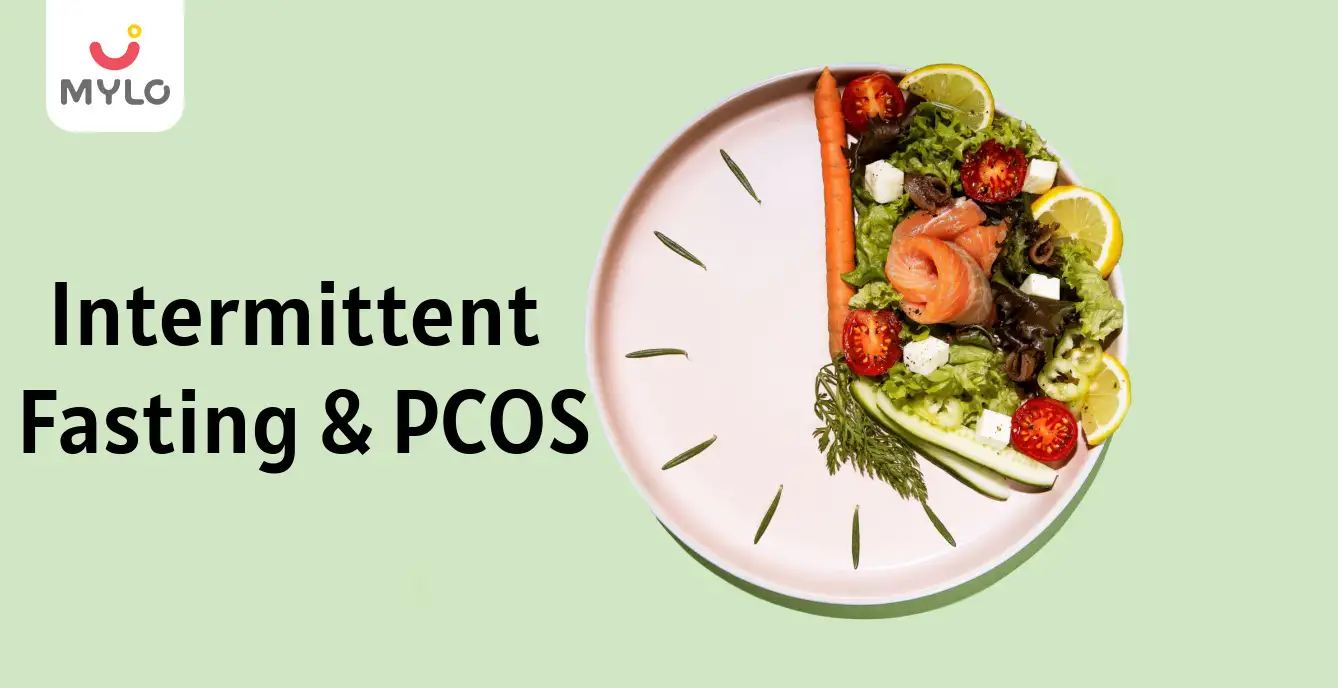Home

Black Period Blood: Is It Normal or a Cause for Concern?
In this Article

Black Period Blood: Is It Normal or a Cause for Concern?
Updated on 22 December 2023



Medically Reviewed by
Dr. Shruti Tanwar
C-section & gynae problems - MBBS| MS (OBS & Gynae)
View Profile

Periods are a natural part of a woman's life, but they can sometimes bring unexpected surprises. One such surprise is the appearance of black period blood, which can be quite unsettling. However, before you panic, it's essential to understand that black colour blood in periods is more common than you might think.
In this article, we will delve deeper into the topic to determine whether black colour period blood is normal or a cause for concern.
Is it normal to experience black blood during period?
Many women may experience variations in the colour and consistency of their menstrual blood, including black blood. While it can be concerning to see black bleeding during periods, it is often a normal occurrence.
Menstrual blood can range in colour from bright red to dark brown, and occasionally even black. The colour of your period blood can be influenced by a variety of factors, such as the age of the blood, the rate of flow, and the presence of certain substances.
You may also like: Understanding Which Hormones Regulate Menstrual Cycle
Is there a relation between black period blood & PCOS?
Polycystic ovary syndrome (PCOS) is a hormonal disorder that affects many women of reproductive age. One of the symptoms of PCOS is irregular periods, which can include changes in the colour and consistency of menstrual blood. While black bleeding in periods can be a symptom of PCOS, it is not exclusive to this condition.
PCOS can cause hormonal imbalances, which can lead to changes in the uterine lining and the way the body sheds it during menstruation. This can result in variations in the colour and texture of menstrual blood, including black blood.
What are the causes of black period blood?
If you too are wondering why is my period blood black and thick, then here are some possible reasons for it:
1. Old blood
The presence of older blood in the uterus can cause black bleeding during periods. This is a normal occurrence and usually not a cause for concern.
2. Clotting
Blood clots during menstruation can darken the colour of the blood. Small clots are generally normal, but if you are passing large or painful clots, it is recommended to seek medical advice.
3. Retained Object
If a foreign object, such as a tampon, contraceptive device or sex toy is left in the vaginal canal for a prolonged period, it can lead to black discharge.
4. Infection
Certain infections, such as pelvic inflammatory disease (PID), bacterial vaginosis or a sexually transmitted infection, can cause changes in the colour and odor of menstrual blood. If you suspect an infection, it is important to seek medical attention.
5. Endometriosis
Endometriosis is a condition in which the tissue that lines the uterus grows outside of it. This can cause changes in the colour and consistency of menstrual blood, including black blood.
6. Uterine fibroids
Uterine fibroids are noncancerous growths that can develop in the uterus. They can cause heavy or prolonged periods, which may include black blood.
7. Hormonal imbalances
Hormonal imbalances, such as those seen in PCOS, can affect the uterine lining and the shedding of blood during menstruation, leading to changes in colour.
8. Medications and contraceptives
Certain medications and contraceptives can affect the colour and consistency of menstrual blood. If you notice any changes after starting a new medication or contraceptive, it is advisable to consult with a healthcare professional.
9. Cancer
In rare cases, black vaginal discharge may be a sign of cervical, uterine, or vaginal cancer.
How to manage and treat black colour blood in periods?
Here are some ways to manage black blood during period and prevent it:
1. Maintain a healthy lifestyle
Eating a balanced diet, exercising regularly, and managing stress can help regulate hormonal imbalances and promote a healthy menstrual cycle.
2. Stay hydrated
Drinking an adequate amount of water can help thin the blood and reduce the likelihood of blood clots.
3. Use heat therapy
Applying heat to the lower abdomen can help alleviate menstrual cramps and improve blood flow, which may help reduce the appearance of black period blood.
4. Consider hormonal therapy
If hormonal imbalances are contributing to black colour period blood, hormonal therapy prescribed by a healthcare professional may help regulate the menstrual cycle.
When to see a doctor
While black bleeding in periods is often normal, there are instances when it is advisable to consult with a healthcare professional:
-
If you are experiencing severe pain or discomfort during your period
-
If you are passing large or painful blood clots
-
If you notice a sudden change in the colour or consistency of your menstrual blood
-
If you have other symptoms, such as abnormal vaginal discharge or fever
A healthcare professional can evaluate your symptoms, perform any necessary tests, and provide you with appropriate guidance and treatment.
FAQs
1. Why is my period blood black and thick?
Black and thick period blood is often the result of older blood that has taken longer to leave the uterus. It is usually not a cause for concern and can be considered normal.
2. Why is my period blood black on the first day?
Black blood on the first day of your period can be attributed to the presence of older blood that has been in the uterus for a longer period of time. It is generally not a cause for concern.
3. What's the relation between black period blood & PCOS?
Women with PCOS may experience black colour bleeding during periods due to hormonal imbalances that interfere with the normal processes of menstruation. It usually indicates presence of old blood that has been in the uterus for a longer time than usual.
The Bottomline
While black period blood can be alarming, it is often a normal occurrence and not a cause for concern. It can be the result of older blood or the presence of clots, both of which are generally considered normal during menstruation. However, if you are experiencing severe pain, passing large or painful clots, or noticing other abnormal symptoms, it is important to consult with a healthcare professional for a proper evaluation and appropriate management. Remember to prioritize your health and seek medical advice whenever necessary.
References
1. Dasharathy SS, Mumford SL, Pollack AZ, Perkins NJ, Mattison DR, Wactawski-Wende J, Schisterman EF. (2012). Menstrual bleeding patterns among regularly menstruating women. Am J Epidemiol.
2. Santos IS, Minten GC, Valle NC, Tuerlinckx GC, Silva AB, Pereira GA, Carriconde JF. (2011). Menstrual bleeding patterns: A community-based cross-sectional study among women aged 18-45 years in Southern Brazil. BMC Womens Health.





Medically Reviewed by
Dr. Shruti Tanwar
C-section & gynae problems - MBBS| MS (OBS & Gynae)
View Profile


Written by
Anupama Chadha
Anupama Chadha, born and raised in Delhi is a content writer who has written extensively for industries such as HR, Healthcare, Finance, Retail and Tech.
Read MoreGet baby's diet chart, and growth tips

Related Articles
Related Questions
Influenza and boostrix injection kisiko laga hai kya 8 month pregnancy me and q lagta hai ye plz reply me

Hai.... My last period was in feb 24. I tested in 40 th day morning 3:30 .. That is faint line .. I conculed mylo thz app also.... And I asked tha dr wait for 3 to 5 days ... Im also waiting ... Then I test today 4:15 test is sooooo faint ... And I feel in ma body no pregnancy symptoms. What can I do .

Baby kicks KB Marta hai Plz tell mi

PCOD kya hota hai

How to detect pcos

RECENTLY PUBLISHED ARTICLES
our most recent articles

PCOS & PCOD
Lean PCOS: A Comprehensive Guide on Causes, Symptoms and Treatment

Mood Swings
PCOS Mood Swings: The Ultimate Guide to Causes and Strategies for Relief

PCOS & PCOD
PCOS and Thyroid: Understanding the Complex Relationship and Finding Solutions

PCOS & PCOD
Intermittent Fasting & PCOS: The Ultimate Guide to Benefits, Risks and Precautions

PCOS & PCOD
Insulin Resistance & PCOS: A Comprehensive Guide to Causes and Management

Breathlessness
Your heart stops beating when your baby feels breathless! Here are 5 things to know about infant breathlessness.
- Newborn Crying: What It Means and How to Handle It?
- When Do Babies Make Eye Contact: Keeping an Eye on Important Milestones
- Is your baby getting breathless frequently? Five things you must know
- 50 Budget-Friendly Birthday Return Gift Ideas to Wow Your Guests
- PCOS Exercise: Your Guide to Sweating Away PCOS
- PCOS and Pregnancy: How to Manage PCOS on the Path to Parenthood
- PCOS Tests: The Power of Diagnostic Tests in Your Health Journey
- Must-Read Ruskin Bond Short Stories for Little Minds
- The Top 10 Tenali Raman Stories You Must Read to Your Kids
- Ovulation Bleeding: The Ultimate Guide to Causes, Symptoms and Management
- A Guide to Recognizing Symptoms of Ovulation After HCG Injection
- Bulky Ovaries Explained: What Every Woman Should Be Aware Of
- Ovulation: The Key to Maximizing Your Chances of Conception and Pregnancy
- The Ultimate Compilation of Fancy Dress Ideas for Young Kids


AWARDS AND RECOGNITION

Mylo wins Forbes D2C Disruptor award

Mylo wins The Economic Times Promising Brands 2022
AS SEEN IN

- Mylo Care: Effective and science-backed personal care and wellness solutions for a joyful you.
- Mylo Baby: Science-backed, gentle and effective personal care & hygiene range for your little one.
- Mylo Community: Trusted and empathetic community of 10mn+ parents and experts.
Product Categories
baby carrier | baby soap | baby wipes | stretch marks cream | baby cream | baby shampoo | baby massage oil | baby hair oil | stretch marks oil | baby body wash | baby powder | baby lotion | diaper rash cream | newborn diapers | teether | baby kajal | baby diapers | cloth diapers |




